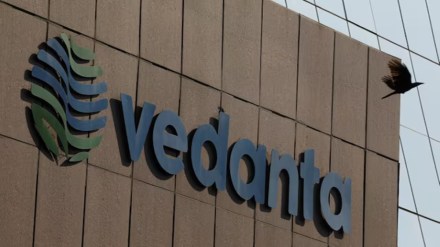Debt servicing through a subsidiary’s cash flows — a key criticism in the recent Viceroy Research report on Vedanta Resources — is a widely adopted model among global conglomerates, proxy advisory firm InGovern has said.
The InGovern report benchmarks Vedanta’s financial structure and governance metrics against peers in the resource and infrastructure sectors, cautioning investors against drawing conclusions from short-seller reports without broader context.
“Debt servicing through subsidiary cash flows is a common and accepted practice among global conglomerates, provided it is transparently disclosed and prudently managed,” InGovern said. It cited comparable structures at Glencore, and Anglo American, along with Indian peers like Tata Sons, Adani Group and Reliance Industries.
Glencore, for instance, “uses dividends and management fees from subsidiaries to service its own debt, which stood at $29.6 billion gross debt as of FY24.” Similarly, Tata Sons, the holding company, earned on over `33,000 crore in dividends from Tata Consultancy Services in FY24 which was then used for debt servicing and investments, the report added.
The report also noted that Vedanta’s financial indicators were found to be largely in line with sector norms observed in the global natural resources and capital-intensive industries. Vedanta Resources’ net debt-to-Ebitda was 2x in FY25, close to Glencore’s 2.2x and Anglo American’s 2.1x. Its listed subsidiary Vedanta had a lower ratio of 1.2x. The dividend payout ratio of Vedanta Resources, estimated at 45–65%, was comparable to Glencore (50–60%) and Anglo American (40–60%).
InGovern also pointed to disclosures and audit standards, noting that related-party transactions at Vedanta accounted for less than 2% of operating expenses in FY24. “Vedanta’s annual reports and regulatory filings provide detailed information on its capital structure, related-party transactions… and audit practices.”
The company’s financials are audited by Deloitte and EY, with no material penalties or adverse findings from regulators in recent years.
The report highlighted a regulatory blind spot that enables offshore short-seller outfits to influence Indian markets without oversight. “Foreign research outfits not registered with Sebi can publish reports on Indian companies without being subject to Indian regulatory scrutiny—even when their actions directly impact Indian investors and markets,” it said.
Short-seller reports, InGovern argued, often carry financial motives and interpret public data selectively. “Short-seller reports often reflect the financial interests of authoring firms and may emphasise negative interpretations of public data,” it said. Investors were advised to weigh such claims alongside disclosures, sector practices and independent analysis.
“Benchmarking against global peers helps place Vedanta’s financial and governance practices in perspective,” the report concluded, adding that continued regulatory scrutiny and transparent communication remain critical in assessing complex holding structures.
